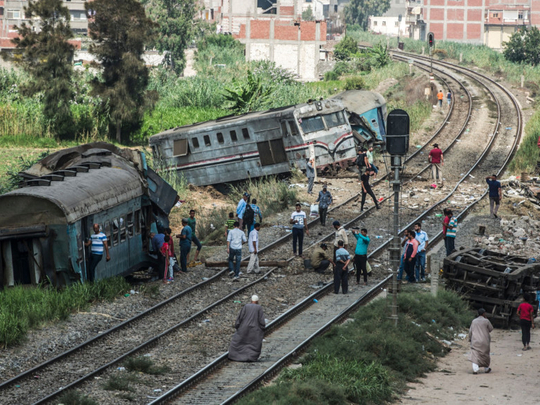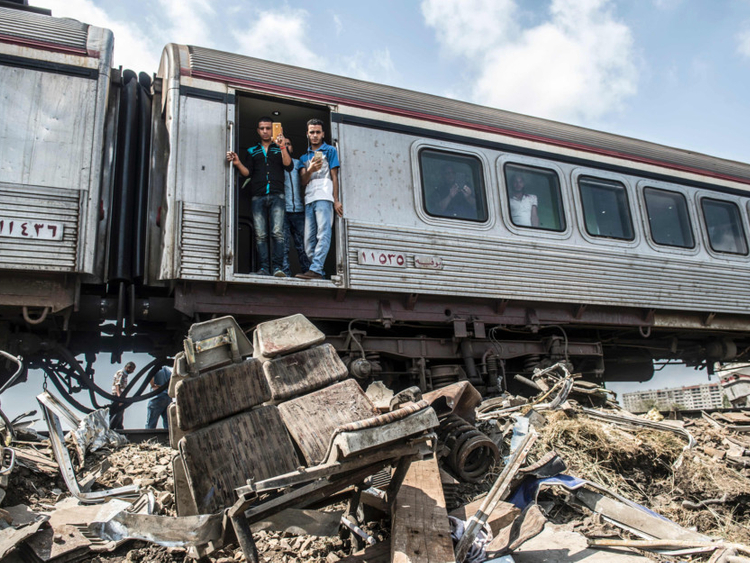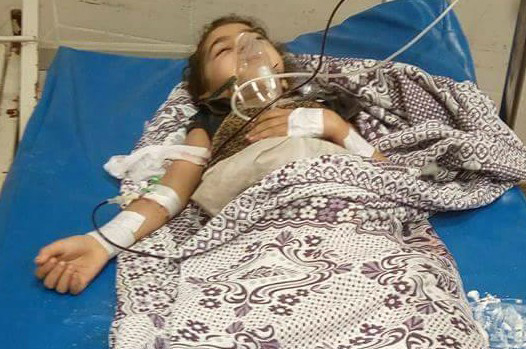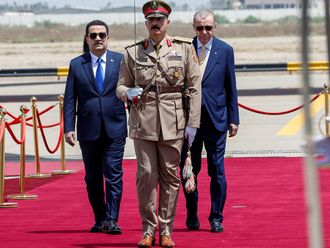
Sharqiya, Egypt: It is a sizzling summer noon in Egypt’s countryside.
This is normally the time to take refuge indoors or under the shade of canal-side trees—away from the scorching sun.
But, in the village of Al Ghunaimya, around 70 kilometres north of Cairo, residents have braved the heat to publicly mourn the loss of six people killed in last week’s train collision in the coastal city of Alexandria.
Grief permeates through the hot, thick air.
Traditional mourning ceremonies have been held over the past days inside and in front of homes of victims. “Our village is drowning in sadness,” says 64-year-old Shukri Saleh, a resident of Al Ghunaimya.
“From our village alone, four children were killed in the accident. There are others, who are lying in hospitals between life and death,” he told Gulf News.
“For how long, will this negligence in trains continue?”
On Friday, a passenger train travelling from Cairo crashed into the back of another train, coming from the coastal city of Port Saeed while it was waiting at a small station in the Mediterranean Sea city of Alexandria.
The collision left 41 people dead and more than 120 injured, according to official figures.
Preliminary investigations have blamed the tragedy on a manual signaling system guiding trains in the area.
Head of the National Railways Authority Hatem Shousha, an ex-army general, resigned after the accident, Egypt’s deadliest rail crash since 2012.
“What is the use of this resignation?” says Sabry Shaalan, whose 11-year-old son, Omar, was killed in the collision.
“Will this resignation bring back to life my son?”
Omar, along with his mother, sister and uncle, had boarded the train bound to Alexandria on a journey to spend some days at the famous summer resort.
Omar’s 12-year-old sister, Yumna, sustained serious bone fractures in the crash.
Their mother and uncle are reported to be in a stable condition in the hospital.
A solemn funeral, attended by hundreds, was held for Omar on Saturday before he was buried in the village located in the Delta province of Sharqiya.
“What wrong did my son do in order to return as a lifeless body instead of enjoying the seaside?” the 50-year-old father told Gulf News in a quivering voice.
“This negligence from the railways {authorities] killed my son and left my daughter fighting for her life. I take refuge in Allah and put my trust in Him,” he adds, before bursting into tears.
Rail crashes are not uncommon in Egypt, the world’s most populous country of around 95 million.
The mishaps are blamed on rickety trains, reckless driving and a poor safety standards.
In 2002, Egypt suffered its worst rail disaster when a train travelling from Cairo to the Upper Egyptian city of Aswan caught fire, killing at least 350 people.
In the aftermath of Friday’s tragedy, Egyptian authorities pledged “comprehensive development” of the nation’s rail system.
Transport Minister Hesham Arafat said that the government would spend 6 billion Egyptian pounds (Dh 1.2 billion) on electrifying the rail signaling system in order to replace the manual one believed to be the cause of the Alexandria crash.
Back in Al Ghunaimya, the voice of a Koran reciter blares on a loudspeaker from a tape recorder.
The recitation from Islam’s holy book is part of a mourning ceremony held in memory of a mother and her three children, who perished in Friday’s tragedy.
The reciter’s voice is occasionally drowned out by shrill cries of female mourners, gathering inside the victims’ house.
“Um [Mother] of Yassin and her three children as well as her brother Abdullah died in this ill-fated accident,” says Fatallah Farhat, a local resident.
“May Allah have mercy upon them and all others who were killed as a result of laxity. We demand President [Abdul Fatah] Al Sissi to honour the memory of the victims by punishing those who are responsible whatever their positions. We also want him to put an end to this negligence of trains. If not, this will not be the last accident.”















